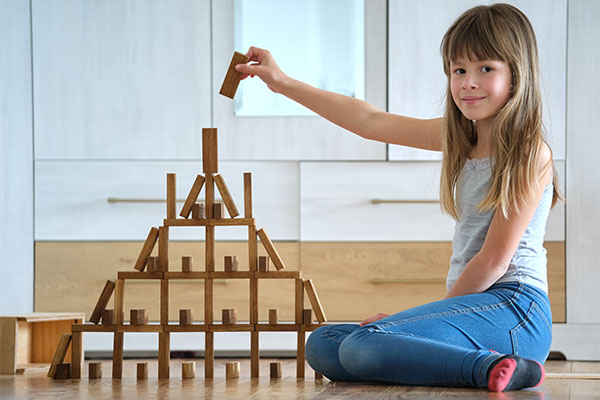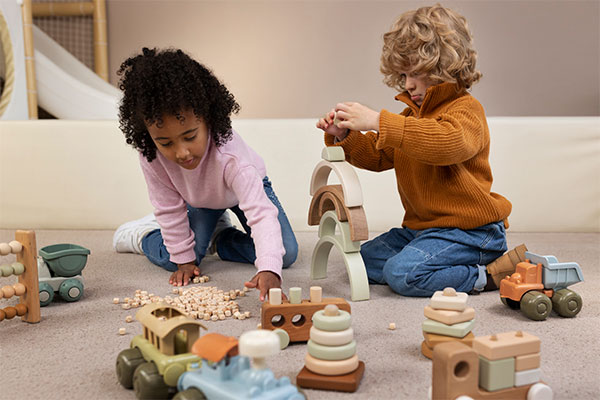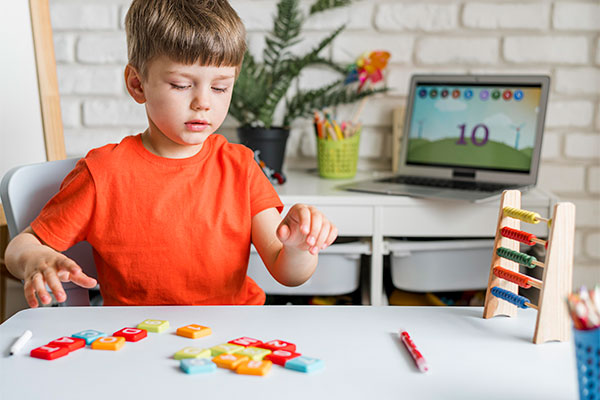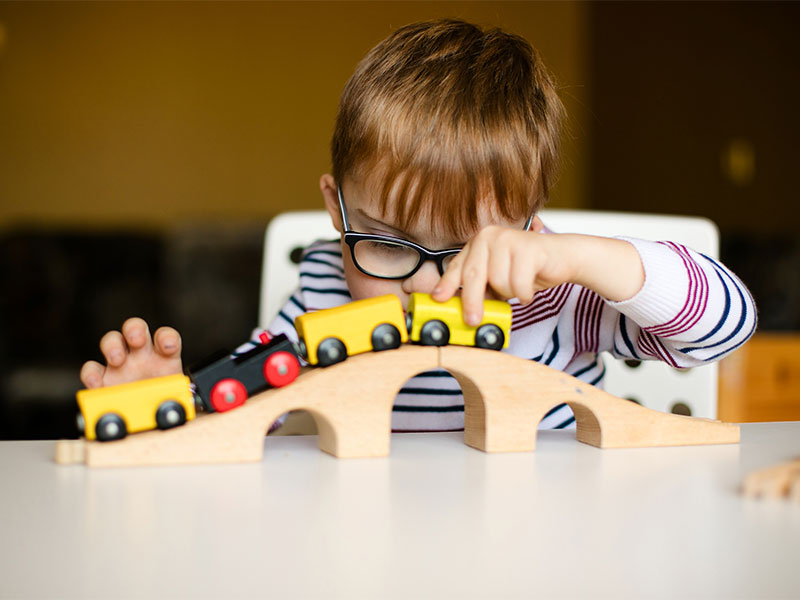The role of unstructured play in child development cannot be overstated. Unstructured play refers to spontaneous, free-form play that allows children to explore, create, and engage without constraints or predetermined rules. Unstructured play serves as a crucial catalyst for child development, offering a myriad of benefits across various domains. From fostering creativity and imagination to enhancing social, emotional, and cognitive skills, unstructured play provides children with invaluable opportunities to explore, learn, and grow.
Children can express themselves through this type of play, solve problems, make social bonds, and improve their physical agility and coordination. Children go on a voyage of self-discovery, independence, and holistic development through exploring the world of unstructured play.

Unstructured play is crucial for children’s whole development, which includes their physical, cognitive, social, and emotional needs. Unstructured play is free, imaginative, and self-directed play, as opposed to structured activities with predetermined aims, where kids are free to explore, create, and interact with their surroundings without restrictions or predetermined rules. Unstructured play offers physical benefits as children move, run, climb, and engage in various physical activities. This promotes the development of gross and fine motor skills, hand-eye coordination, and overall physical fitness.
In terms of physical development, unstructured play promotes active movement and physical fitness. As children run, jump, climb, and explore their environment, they develop strength, coordination, and motor skills. It also helps them develop body awareness, spatial orientation, and overall physical dexterity.

Unleashing Potential: The Power of Unstructured Play in Child Development
- Enhancing Cognitive Development:

Unstructured play stimulates a child’s cognitive abilities, fostering problem-solving, critical thinking, and creativity. When children engage in imaginative play, such as building forts or creating make-believe scenarios, their minds learn to navigate challenges, develop solutions, and think outside the box. This process enhances their cognitive flexibility, enabling them to adapt to different situations and explore multiple perspectives.
Visit: tips to develop child curiosity
2. Promoting Emotional Well-being:

Unstructured play supports emotional development by providing an outlet for children to express and regulate their emotions freely. Children encounter various social scenarios during play that present opportunities to understand and manage their feelings. Through pretend play or interacting with peers, children can explore different emotions and develop empathy, self-awareness, and emotional resilience. This emotional intelligence becomes an invaluable asset throughout their lives. The best personality development coach will help direct your attention to the positive impact of unstructured play on a child’s emotional well-being.
3. Fostering Social Skills:

Unstructured play offers rich opportunities for children to interact with their peers, fostering the development of social skills. By engaging in cooperative play, children learn to communicate, negotiate, and collaborate with others. They develop essential skills such as sharing, taking turns, resolving conflicts, and building relationships based on trust and mutual respect. These interpersonal skills provide a solid foundation for successful social interactions in school, community, and future endeavors.
4. Physical Development and Motor Skills:

Unstructured play promotes physical development and the refinement of motor skills. Activities like climbing, running, jumping, and exploring nature enhance a child’s gross motor skills while manipulating small objects during imaginative play enhances fine motor skills. Regular unstructured play also contributes to overall physical fitness, coordination, and spatial awareness, reducing the risks of sedentary lifestyles, obesity, and related health issues. Polish the skills that set your kids apart and unlock a world of possibilities in every facet of life for them with the help of classes for personality development for kids.

Visit: importance of pedagogy in teaching
5. Promoting Self-Regulation and Independence:

Unstructured play allows children to take the lead, make decisions, and manage their experiences independently. When given the freedom to set their own rules, choose their activities, and play in an unstructured atmosphere, children gain self-regulation skills. By making choices and dealing with the consequences of those choices, children develop their capacity for accountability, resilience, and independence.
6. Incorporate Structured Learning:

Unstructured play is a crucial part of a child’s development, but structured learning can also provide immense benefits. A personality development course is a great way to enhance the positive impacts of unstructured play. By introducing children to the world of structured learning, parents are giving their kids the gift of self-confidence, resilience, and the tools to express themselves in a meaningful way. With the proper guidance, these courses can help children build a strong foundation for personal growth and success.
Visit: self esteem activities for kids
Conclusion
Unstructured play is important for a child’s development since it fosters their physical, mental, emotional, social, and personality growth. It gives kids the flexibility to be creative and the chance to study and develop at their speed. By providing ample time and opportunities for unstructured play, parents and caregivers can support the overall development and well-being of children. This type of play allows kids to express themselves, solve problems, make social ties, and improve their physical strength and coordination. By exploring the world of unstructured play, children go on a voyage of self-discovery, independence, and holistic development.
The role of unstructured play in child development is very significant and impactful. Unstructured play should be encouraged and prioritized in today’s society, where children are often surrounded by structured activities and technology-driven entertainment.
Why Sanjeev Datta Personality School?
- INTERVIEW TRAINING
- Leadership
- Presentation Training
- Social Boldness
- Dressing Etiquette
- Office Etiquette
- Communication Skills
- English Speaking
- Anger Management
- Time Management
- Team Building
- Performance Enhancer
- Soft Skills
- Goal Setting
- Career Counselling
- Student Subject Choice Counselling
- Listening Skills
- Video Presentation
- Meditation
For more details, contact us now!


